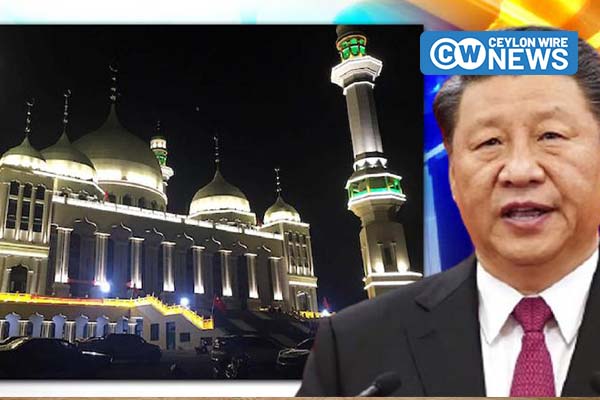Human Rights Watch (HRW) has alleged in a newly released report that China is undertaking a systematic effort to close, destroy, and repurpose mosques, as part of a broader crackdown to limit the practice of Islam in the country. Despite an official claim of allowing religious freedom, China, which has around 20 million Muslims, is facing increasing scrutiny for its actions against organized religion, with observers noting Beijing’s pursuit of greater control.
HRW’s report highlights instances such as in the Muslim-majority village of Liaoqiao in Ningxia, where three out of six mosques have had their domes and minarets removed, while others had their main prayer halls destroyed. Satellite footage obtained by HRW reveals the replacement of a mosque’s dome with a Chinese-style pagoda.
According to Hannah Theaker, a scholar on Chinese Muslims, approximately 1,300 mosques in Ningxia have been closed or converted since 2020, representing a third of the total mosques in the region. Under the leadership of Xi Jinping, the Chinese Communist Party has sought to align religion with its political ideology and Chinese culture, as outlined in a 2018 document urging control and consolidation of mosques.
The crackdown on mosques has extended beyond Ningxia, impacting regions like Xinjiang, where about two-thirds of the mosques have been damaged or destroyed since 2017. Dr. Theaker notes that Ningxia has been a pilot site for the implementation of the “Sinicisation” policy, part of Xi’s efforts to align religious beliefs with Chinese culture.
“Sinicisation” refers to the transformation of religious beliefs to reflect Chinese culture and society. The Chinese government argues that consolidating mosques, often occurring during village relocations, reduces economic burdens on Muslims. However, some Hui Muslims view it as an attempt to redirect their loyalty towards the Party.
Residents opposing “Sinicisation” policies have faced challenges, with many jailed or detained after clashes with authorities over mosque closures or demolitions. External elements are removed first, followed by the elimination of facilities essential for religious activities, ultimately providing authorities with an excuse to close the mosques, according to Hui activist Ma Ju.
Elaine Pearson, HRW’s Asia director, calls on Arab and Muslim leaders worldwide to raise concerns about China’s actions. The report also notes that other ethnic and religious minorities in China, such as Tibetans and Christians, have faced similar government campaigns, highlighting a broader pattern of restrictive policies affecting various communities. Source – BBC









